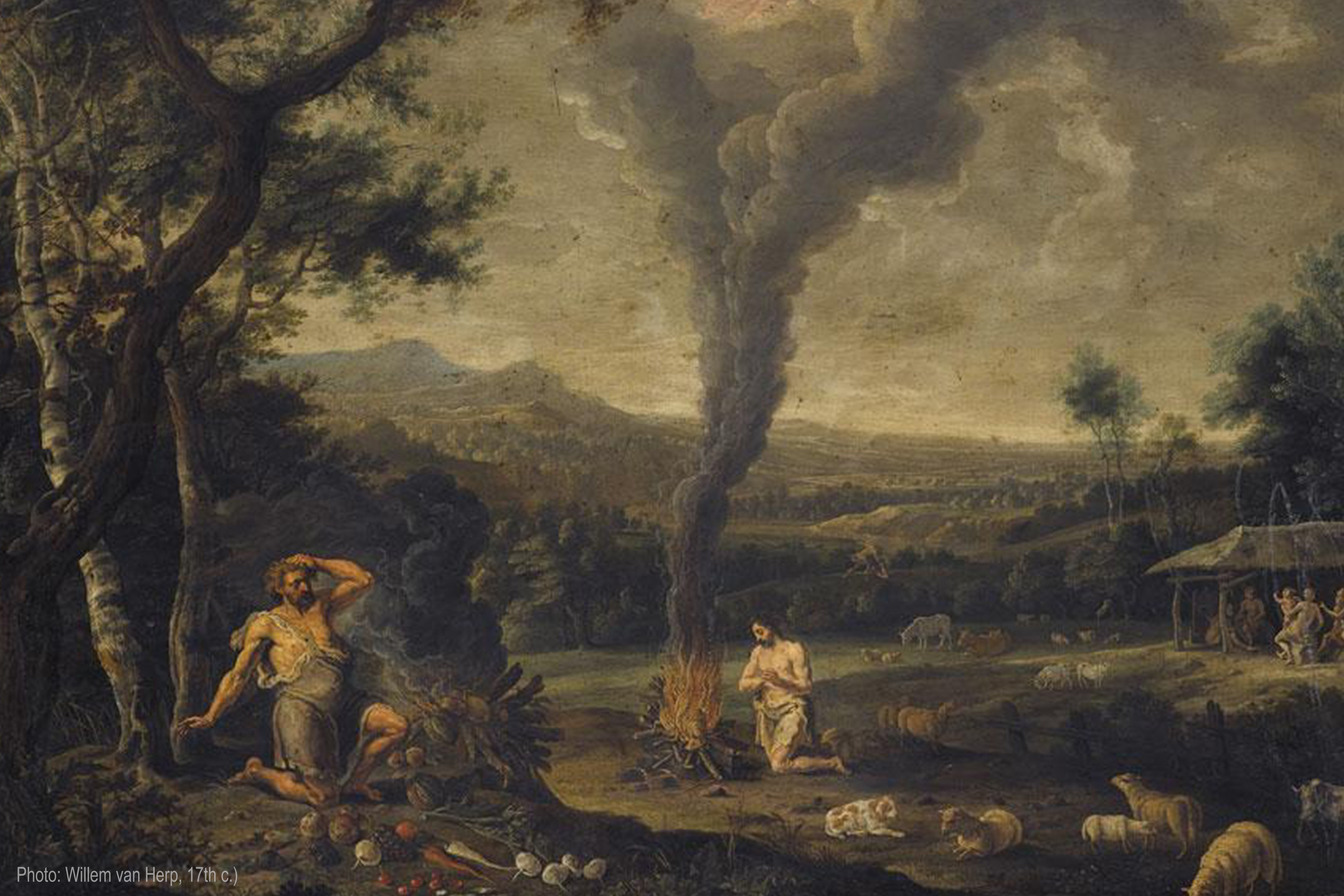In the BeginningSample


My Brother's Keeper
Then the LORD said to Cain, “Where is your brother Abel?”
“I don’t know,” he replied. “Am I my brother’s keeper?” — Genesis 4:9
When I was growing up, I knew very little about what my father, Rabbi Yechiel Eckstein, of blessed memory, was building at The Fellowship. When I moved to Israel, shortly after I got married, my father brought me to see some of The Fellowship’s charity projects. It was then that I began to understand the magnitude of my father’s work—and also, why he had dedicated his life to it.
Until that time, I did not understand the extent of the poverty in Israel. As I became more involved in The Fellowship, I learned more about the dire needs of Jewish people, including elderly Holocaust survivors, around the world. Once my eyes were opened to the difficult reality of my brothers and sisters in need, I knew that like my father, I would dedicate my life to doing all I could to help them.
In this week’s Torah reading, we learn about the tragic encounter between Cain and his brother Abel. After Cain slew Abel, God confronted him and asked, “Where is your brother Abel?” Cain infamously replied, “Am I my brother’s keeper?”
The Jewish sages explained that, of course, God knew where Abel was. God was really asking, “What have you done to your brother?” God was giving Abel a chance to take responsibility for his actions. However, Cain did the exact opposite. His reply meant, “I am not responsible for my brother.”
Every year, when we read this story in the weekly Torah portion, I feel as though God is addressing each of us and asking, “Where is your brother? Where is your sister?” Are you aware of their suffering? Do you care?
In response, we can insist that the poor and needy are not our responsibility. Like Cain, we can say, “Am I my brother’s keeper?” Or we can affirm our commitment to helping our brothers and sisters in any way we can.
Now is the time to declare, “I am my brother’s keeper, I am my sister’s keeper.” We need to open our eyes to the suffering of others and extend a helping hand. We are part of one family—God’s family—and we bring great joy to our Father in heaven when we care for His children.
For more on the Bible, the Jewish roots of your Christian faith, and how you can support Israel, visit our Learn Center.
Scripture
About this Plan

For millennia, God’s people have been carrying out a weekly Bible study plan. Every year, they read through the Torah from Genesis to Deuteronomy. In synagogue each week, they read and study a Bible passage—the weekly parshah. Let’s begin at the beginning of the Bible with the very first parshah of this ancient reading cycle, which Jews around the world will begin again this week on the holiday of Simchat Torah (Hebrew for “Rejoicing in the Torah"). This week’s parshah is called “Bereshit,” which is Hebrew for “in the beginning,” and covers Genesis 1:1—6:8.
More
We would like to thank International Fellowship of Christians and Jews for providing this plan. For more information, please visit: https://www.ifcj.org
Related Plans

Fierce Hope: An Advent Journey of Waiting and Wonder

And He Appeared

Financial Discipleship – the Bible on Children

TellGate: Mobilizing the Church Through Local Missions

Freedom From Familiar: 5 Day Devotional

Legacy: From One Generation to the Next

Focus: Living With Clarity, Purpose, and Eternal Vision

Having Fun in Marriage

The Aroma of Christ
